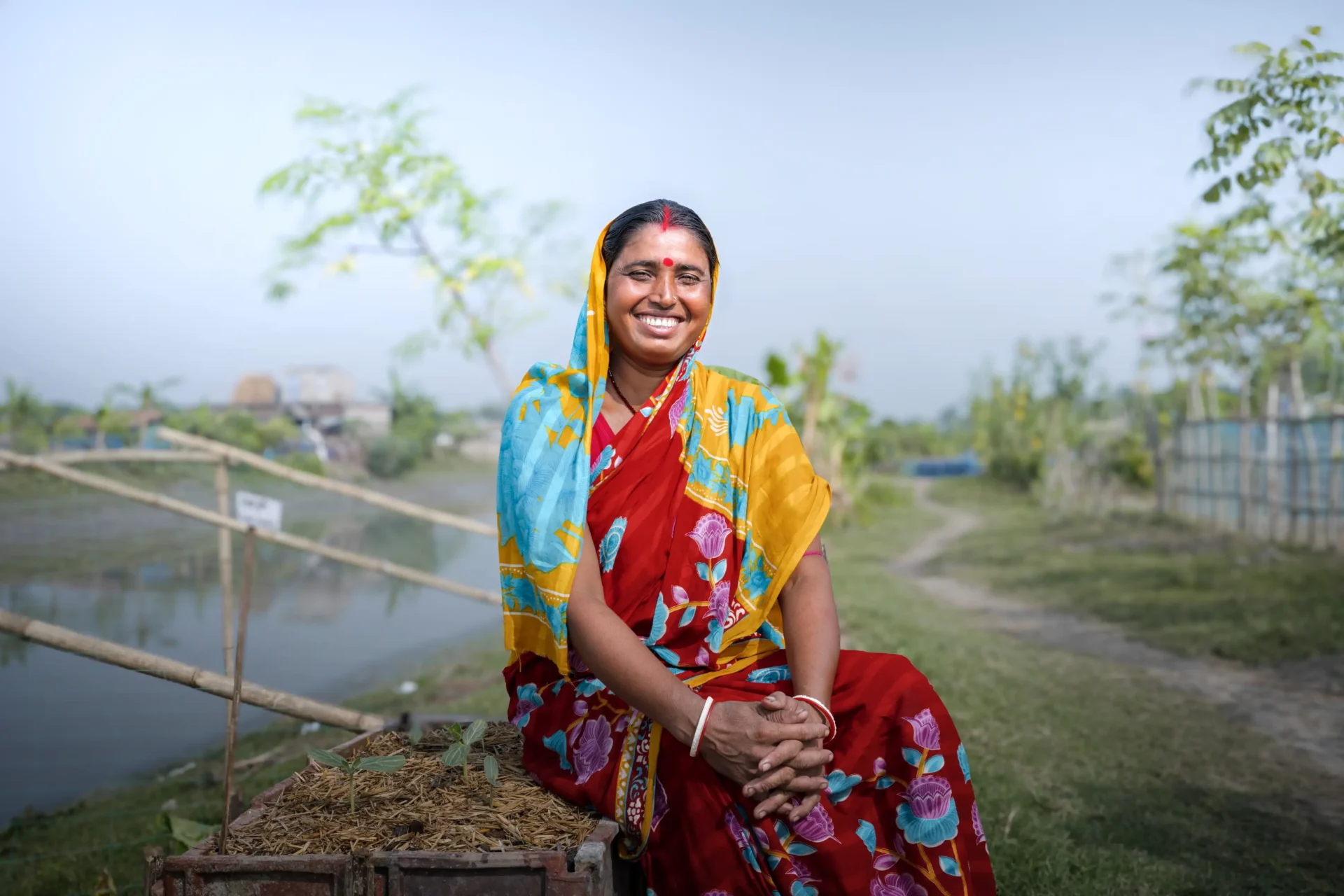Rekha, Bangladesh
In the coastal district of Satkhira, Bangladesh, life is shaped by the sea. For over fourteen years, Rekha and her family have faced the harsh realities of life surrounded by salty water, frequent flooding, and limited resources. With only one member of the household earning an income, food security is a constant struggle.
But Rekha is determined to create a better life for her son. She and her husband grow vegetables, and through Action Against Hunger’s programme she joined a women’s farmer group to learn new techniques for cultivating crops in such harsh conditions.
“I joined the programme around May or June. We’ve been applying what we learned because before this, we didn’t know how to grow crops in this way,” she explains. “Previously, we bought vegetables from the market, and now, we can eat fresh vegetables from our kitchen garden.”
Rekha proudly describes how she built a raised seedbed to protect plants from floods, using paddy straw and sacks to keep them safe.
“When the area flooded, water covered everything except the spot where I had built the raised platform. To protect the plants, I made the ground higher and constructed a loft. I placed the seedbed in a sack at that height and planted the seedlings, which have now grown well. From those plants, we harvest vegetables that we can both eat and sell.”

She also makes her own organic fertiliser at home, ensuring her family can eat fresh food.
“We don’t use any pesticides in it,” she says. “Ridge gourd and bitter gourd grow well during the rainy season, but pumpkin doesn’t grow as much at that time. During the sunny months, the salinity in the soil increases a lot. At that time, it becomes very difficult to grow most vegetables, but gourd still manages to grow.”
Through hard work and innovation, Rekha has reduced her family’s food expenses and secured a reliable source of nutrition. Today, she has ambitious plans to increase her production further — helping not only her own family but her wider community too.
Arfanullah, Afghanistan
When Khan Mohammad and Babri moved their young family to Kabul, they were searching for something simple: safety, stability, and the chance to feed their children.
“We shifted from Paktia to Kabul, because there was no job opportunity in Paktia,” Khan explains. “In spring, things are still manageable but in winter, we struggle to find even enough food for three meals a day.”

But life in Kabul brought its own challenges. With no steady work, rising costs, and harsh winters, survival became a daily struggle.
“Honestly, now there’s no work here that we can rely on day to day.,” Khan says.
Their youngest son, Arfanullah, was born healthy, but within weeks, he began losing weight.
“After 2 months he started losing his weight,” Babri recalls. “When I realised, I took him to several places for treatments.”
They tried everything—private hospitals, local clinics, government facilities—but nothing worked.
“We admitted him to several private hospitals but the medicine did not have any impact,” she says. “Then we went to the Therapeutic Feeding Unit, and the doctors gave him medicine and milk, and he has become good day by day.”
At Action Against Hunger’s Therapeutic Feeding Unit (TFU), Irfanullah received round-the-clock care.
“After being hospitalised, they told me his weight was too low and started giving him milk every two hours,” Babri shares. “They gave us food three times a day, warm water to wash the children’s clothes, and guidance on how to keep Arfanullah clean, how to feed him properly, and how to care for him so he could grow up healthy and happy.”
Thanks to Action Against Hunger’s support, Arfanullah began to recover.
“There were many children suffering from serious illnesses — pneumonia, heart disease, and malnutrition. The women told me this hospital provides excellent treatment. They don’t discharge you until you’re truly ready to leave.”
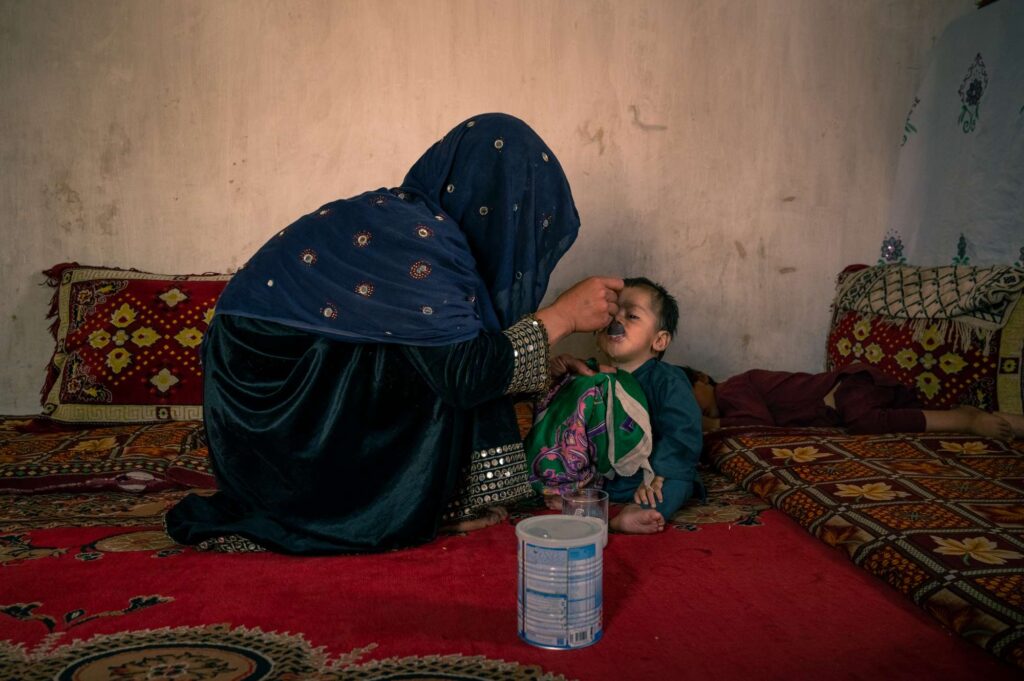
Today, the family still faces challenges, but they know where to turn.
“We didn’t know that better treatment was available here,” Babri says. “They started giving him milk… and once he responded well to it, they advised us to continue getting the same milk from the market.”
Ledis, Columbia
Ledis lives on the outskirts of the city of Barranquilla in one of the poorest neighbourhoods in the area. She moved to the area 15 years ago when she was forced leave her home in the south of Colombia when the war reached her village.
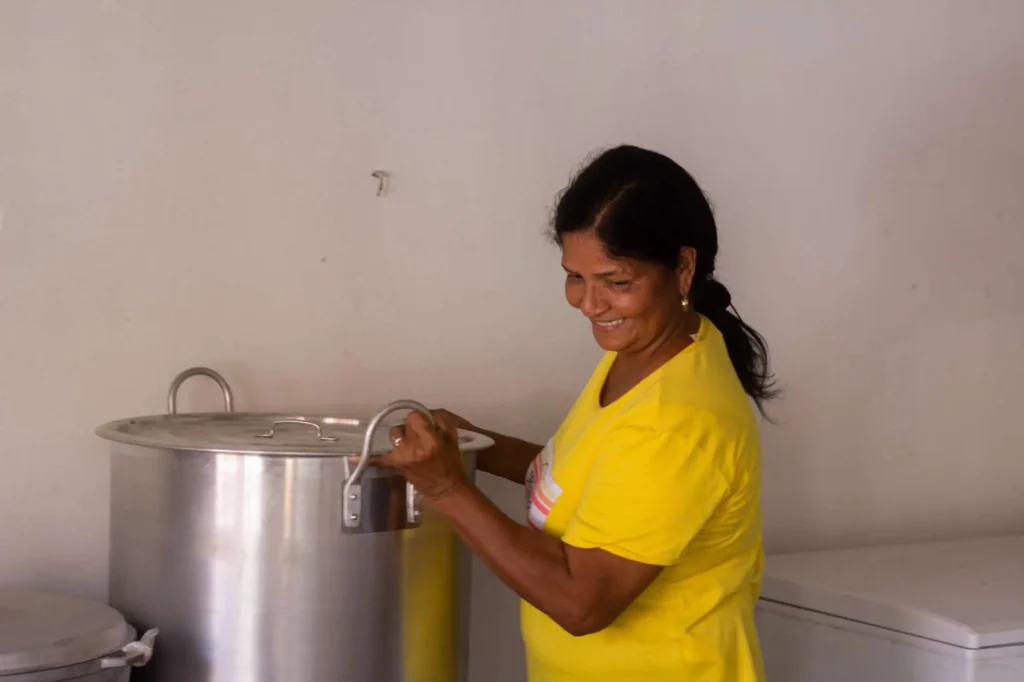
“My husband and father of my children was killed in the war,” she says.
Sadly, one of Ledis’ children also died.
“To escape the fighting, I travelled with my two children for six hours on a bus and another two hours on a tiny boat. I started everything here from scratch.”
Ledis heard about Action Against Hunger’s employment and entrepreneurship programme one day at her local community centre.
“When I heard I had been accepted I was so emotional,” she says. “I always wanted to open my own restaurant. My mum taught me how to cook when I was younger and I have always loved it.”
“I was so happy with the training, I learned so much. It really opened my eyes about how to run a business. Now I know how to balance my accounts and I know if I am making a profit. Before, I would just buy and sell things and not know how to save money. Now I have savings.”

At the end of the course, all graduates received materials to help kickstart their businesses. Ledis was given a set of large pans so she could batch cook for many customers, along with a new stove as her old one at home was worn out and couldn’t handle the volume of cooking she needed to do. Remarkably, a set of pans that will help Ledis serve her customers for years costs just £20.
“I never thought I would own things like this, thank you so much to Action Against Hunger. When I saw the pans and stove being delivered I was so emotional, I had no words – which is unusual for me!”
Gelaye, Ethiopia
For families in Ethiopia forced from their homes by conflict, Action Against Hunger’s mobile outpatient therapeutic programme is often their only lifeline. In remote parts of Ethiopia, where displaced people settle far from health facilities, our white tents stand out against the red sand. From here, our teams provide urgent nutrition support, medical care, safe water, and counselling.
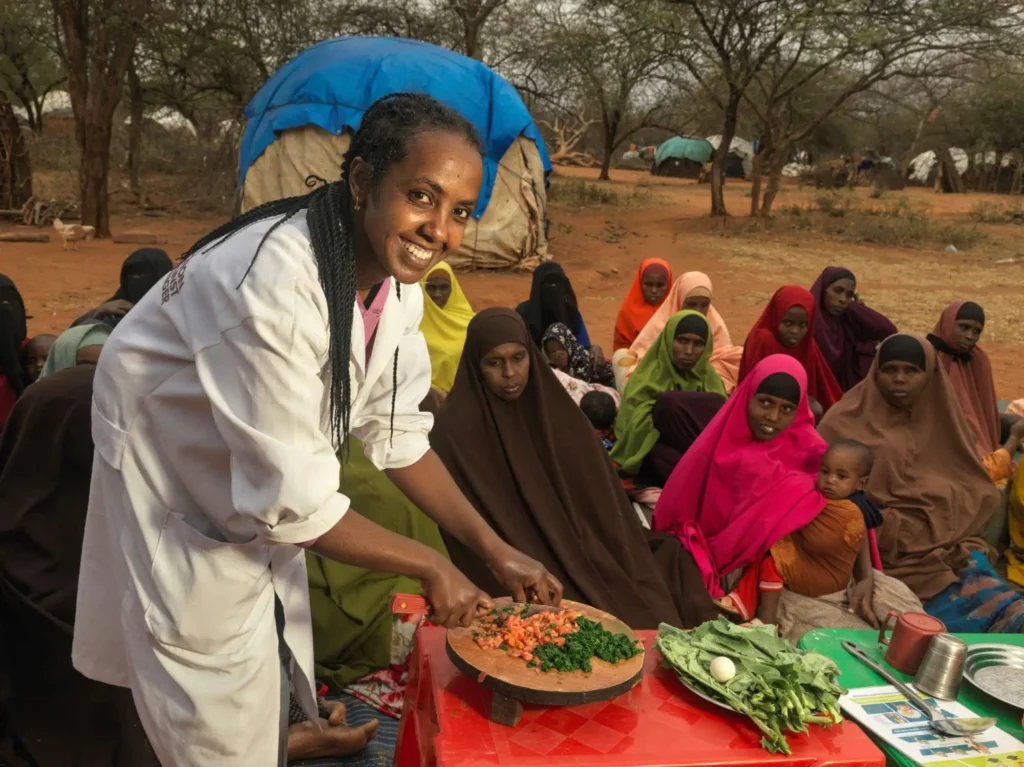
One of the people leading this work is 24-year-old nutritionist, Gelaye. For the last four years, she’s been working with mothers and young children in Guchi, teaching families how to keep their children healthy and strong.
“I feel proud when I see mothers breastfeeding after my coaching,” says Gelaye. “It helps both the child and the mother. That makes me happy.”
What makes her especially proud are her cooking demonstrations. Using only ingredients families can find locally, Gelaye shows mothers how to prepare meals with the nutrients children need to grow and thrive. She explains the value of each food, in the community’s own dialect, so the lessons are clear and easy to remember.

But Gelaye’s work is about more than nutrition. It’s about giving families the confidence and resilience to face challenges. Mothers here are struggling against hunger, poverty, and the effects of climate change — but with the support of Action Against Hunger, they have the tools to protect their children.
Gelaye has seen both heartbreak and hope in her role. She has cared for children who did not survive malnutrition — experiences that nearly made her leave the profession. But then her nephew was born premature and underweight. Thanks to her knowledge, she taught her sister how to breastfeed and keep the baby warm through kangaroo mother care. Today, he is a healthy four-year-old boy.
“That moment showed me the importance of my work,” says Gelaye. “It made me determined to keep going.”
Because of Gelaye’s work, children in this community are growing stronger every day. Families no longer have to travel for miles to reach help. And young women have the training, tools, and trust they need to protect the next generation.
Georges – DRC
As a relay farmer and community leader, Georges plays a vital role in strengthening local agriculture. Relay farmers are trained to pass on farming knowledge and techniques to others in their community, and Georges has done just that. With the skills he gained through agricultural training, he now helps fellow farmers produce seeds, seedlings, and nurseries to improve food production.

He explains that food insecurity in the region is largely driven by conflict in Djugu territory.
“People abandon their land and become displaced, which makes it difficult to cultivate even when they return”.
Equipped with new farming tools, seeds and training, nearly 2,200 families with access to cultivable land have been able to develop their own fields and vegetable gardens. In total, nearly 2,283 tonnes of cabbage, onions, spinach and amaranth were produced by all the participants.
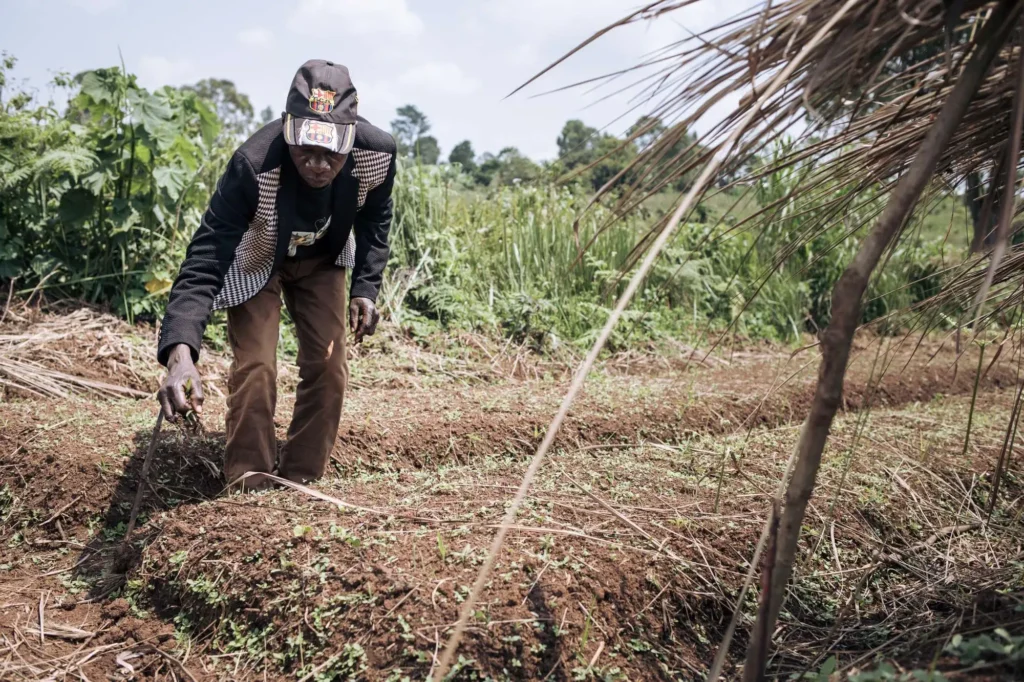
“We thank Action Against Hunger because they did not just do one job. They did at least three different jobs. They gave the seeds to the people, they gave the food to the people and they also helped the children who were in poor health and malnourished.”

